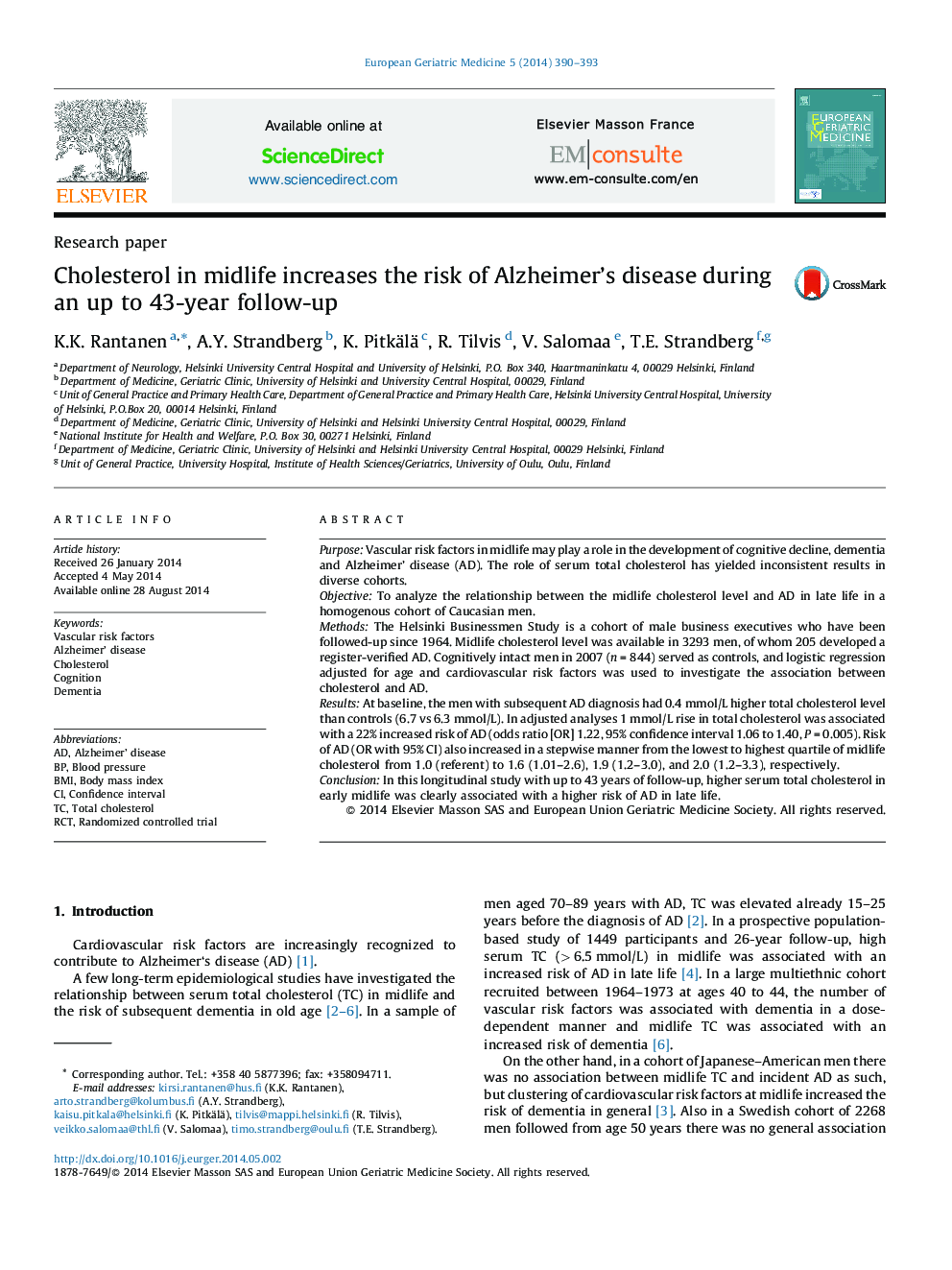| Article ID | Journal | Published Year | Pages | File Type |
|---|---|---|---|---|
| 3324060 | European Geriatric Medicine | 2014 | 4 Pages |
PurposeVascular risk factors in midlife may play a role in the development of cognitive decline, dementia and Alzheimer’ disease (AD). The role of serum total cholesterol has yielded inconsistent results in diverse cohorts.ObjectiveTo analyze the relationship between the midlife cholesterol level and AD in late life in a homogenous cohort of Caucasian men.MethodsThe Helsinki Businessmen Study is a cohort of male business executives who have been followed-up since 1964. Midlife cholesterol level was available in 3293 men, of whom 205 developed a register-verified AD. Cognitively intact men in 2007 (n = 844) served as controls, and logistic regression adjusted for age and cardiovascular risk factors was used to investigate the association between cholesterol and AD.ResultsAt baseline, the men with subsequent AD diagnosis had 0.4 mmol/L higher total cholesterol level than controls (6.7 vs 6.3 mmol/L). In adjusted analyses 1 mmol/L rise in total cholesterol was associated with a 22% increased risk of AD (odds ratio [OR] 1.22, 95% confidence interval 1.06 to 1.40, P = 0.005). Risk of AD (OR with 95% CI) also increased in a stepwise manner from the lowest to highest quartile of midlife cholesterol from 1.0 (referent) to 1.6 (1.01–2.6), 1.9 (1.2–3.0), and 2.0 (1.2–3.3), respectively.ConclusionIn this longitudinal study with up to 43 years of follow-up, higher serum total cholesterol in early midlife was clearly associated with a higher risk of AD in late life.
